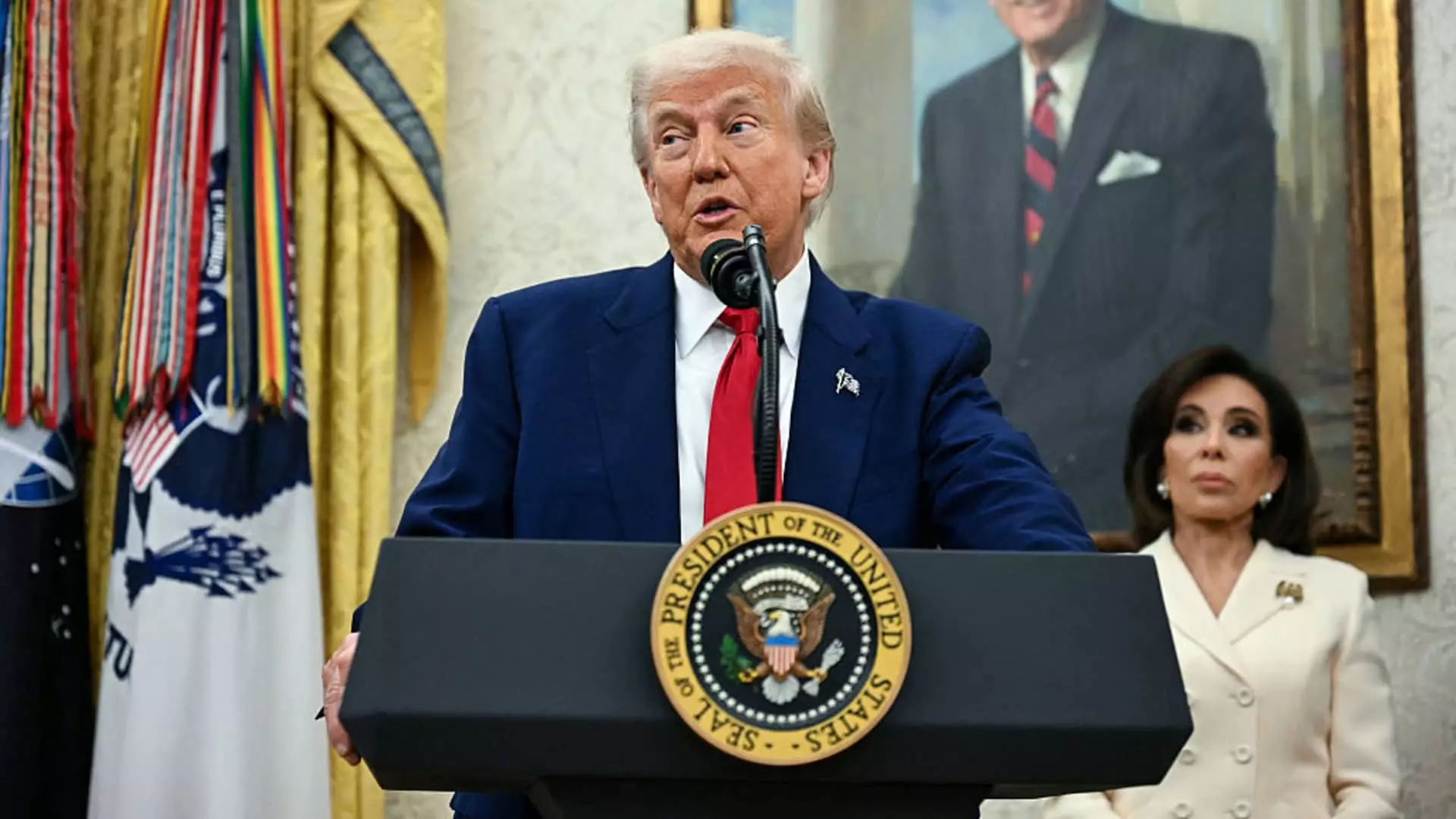In recent months, a sharp critique of President Donald Trump’s approach to tariffs has emerged, encapsulated in the satirical term “TACO trade,” which stands for “Trump Always Chickens Out.” This term, coined by a Financial Times columnist, succinctly captures a disturbing pattern in Trump’s economic strategy: bold, aggressive threats that initially panic markets, only to be followed by indecisiveness and retreat. This cyclical behavior not only reflects a troubling inconsistency in leadership but raises important questions about the long-term impacts of such gambits on global trade dynamics.
Trump’s recent rhetoric surrounding tariffs on the European Union serves as a striking illustration of this phenomenon. After initially threatening a staggering 50% tariff, his administration quickly pivoted to delay the implementation following pushback from European leaders. It was an attempt to portray negotiation prowess. Yet one cannot help but wonder whether this approach instills confidence in U.S. trade policy, or instead signals a fundamental unpredictability that undermines trust in American dealings with foreign nations.
Market Volatility: A Fruitless Cycle
The rollercoaster ride of stock market movements in response to Trump’s trade policies is troubling for any liberal-minded economist. When hefty tariffs are announced, stocks plunge; when delays or reductions occur, they bounce back. This cycle only serves to create an environment of uncertainty, leading investors to question not only the credibility of the U.S. market but also the stability of the global economy. Such erratic behavior echoes the worst qualities of an adolescent learning to handle a complex financial world, recklessly throwing money around without fully grasping the consequences.
In his dialogue with media outlets, Trump consistently reframes these market reactions as signs of his negotiating success. The “success” is tainted by grasping at straws; it’s a feeble attempt to justify tactical retreats as strategic maneuvers. A credible leader would view these unexpected pivots as failures of policy rather than victories to promote. Attempting to spin this instability as a win undermines democracy’s reliance on transparency and accountability, which are vital to economic trust.
Global Implications of Chicken Diplomacy
The ramifications of this swap-and-fade tariff strategy extend far beyond American borders. Trump’s approach has significant implications on the global landscape, significantly eroding the U.S.’s role as a reliable trade partner. When tariffs are threatened and then swiftly abandoned, countries may hesitate to engage in meaningful agreements, fearing future volatility. Is the U.S. prepared to be perceived as a volatile player in the world trade game, where reliability and foresight are crucial? This question hangs ominously over the economic future.
If one aspires for a progressive and liberal approach to the global marketplace, it is vital to stand in opposition to the reckless instinct of using trade as a wedge rather than a tool for collaboration. The TACO trade tactic, while perhaps effective in the short term for garnering political points, ultimately plays a dangerous game of brinksmanship that does more harm than good. It undermines the possibility of sustainable agreements that benefit all parties involved, a defining aspect of any robust liberal economic policy.


Leave a Reply